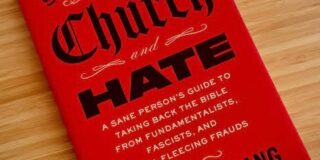In the late afternoon of May 22, 1787, a group of a dozen men officially assembled at James Phillips’ bookstore and printing shop located at 2 George Yard, London. While the bookstore and printing shop have been replaced by a modern glass and steel building, home of Adelphi Capital, the idea that 2 George Yard gave birth to lives on. ‘Lives on’ is perhaps not the right phrase for the lingering after effects of the idea that was born on that spring afternoon all those years ago; the idea that those twelve gave birth to was that morality and justice extends beyond your own front door and that someone else’s rights are as valid and important as your own. This unfortunately is a notion that has been almost entirely lost in this modern glass and steel world we now inhabit.
Alexis de Tocqueville described the movement, the anti-slavery movement that formed around the idea that these twelve gave birth to in 1787 as:
…something absolutely without precedent in history… If you pore over the histories of all peoples, I doubt that you will find anything more extraordinary.
Indeed, it was something absolutely without precedent in history. In the world of 200 years ago, slavery and bondage were the norm rather than the exception; to the society of the day it was unthinkable that it could be otherwise. The world in which these twelve men lived was a world in which approximately 85% of people lived in varying degrees of slavery and serfdom, a world in which historian Seymour Drescher described as one in which:
freedom not slavery was the peculiar institution.
Yet out of this world of suffering and injustice came the idea that all men, regardless of race, creed or colour, are brothers and their suffering is our suffering, their rights are as important as our rights. One of the many lessons that came out of the May 22, 1787 meeting was that one voice, in this case the voice of Thomas Clarkson, saying no is all it takes to start of revolution of moral consciousness.
What is astounding about the world of the late 1700s is how quickly it came to an end once the revolution of moral consciousness started. By the end of the 1800s slavery, at least on paper, had been outlawed almost everywhere. The anti-slavery movement had achieved its goal in little more than a lifetime.
The voices of twelve angry men
What developed from that faithful meeting held on May 22, 1787 was one of the most ambitious and brilliantly organised citizens’ campaigns of all times. A grassroot social movement, in many ways a viral campaign which owes much the marketing genius of Josiah Wedgwood, the company’s founder, who joined the anti-slave trade campaigners in 1790. Wedgwood had a genius for what is today called product placement. He’d find ways of getting his vases into famous paintings, for example, and figured he could deploy the same techniques in a political campaign. He came up with the anti-slavery logo depicting a chained African with the inscription “am I not a man and a brother?” It was everywhere, from hats to the stamps used to seal wax on envelopes. As Thomas Clarkson wrote:
Ladies wore them in bracelets, and others had them fitted up in an ornamental manner as pins for their hair. At length the taste for wearing them became general, and thus fashion, which usually confines itself to worthless things, was seen for once in the honourable office of promoting the cause of justice, humanity and freedom.
Wedgwood’s design was a precursor of today’s ribbon or wristband. Symbols such as Wedgwood’s give potency to a grassroot campaign, and make it even more contagious. However to be successful a grassroot campaign needs more than clever marketing. Thomas Clarkson, an Anglican Minister, was one of the twelve angry men who attended that meeting on May 22, 1787. He was a man of prodigious energy who was to spend sixteen hours a day campaigning against slavery. For Clarkson this meeting was the beginning of an odyssey that would take him from pubs to emperors, from the decks of navy ships to the halls of the British Parliament. He was a man who was prepared to follow the light of his own conscience wherever it took him.
Though not at the meeting that faithful day John Newton, a slave ship captain and author of the hymn ‘Amazing Grace’, would eventually hear Clarkson’s “sweet sound” and “see” for himself the inhumanity that was slavery and join in his crusade. Olaudah Equiano a freed slave spoke out for others in bondage, reaching tens of thousands of readers with his life story.
The British abolitionists like anyone who wages a campaign against entrenched economic interests, discovered that injustice does not vanish so easily. But, and this is a big BUT, their passion and optimism proved equal to the challenge and eventually carried the day. This passion and optimism is still contagious and relevant to our own times, when in many parts of the world equal rights for men and women seem far distant.
A landmark movement for someone else’s rights
The anti-slavery movement that was eventually to grow out of the the meeting at 2 George Yard caught everyone by surprise. Slaves and other subjugated people have rebelled throughout history, but this campaign was something never seen before. It was the first time a large number of people became outraged and stayed outraged for many years over someone else’s rights; not just anybody’s rights, but the rights of people of colour living on a different continent. As Stephen Fuller, the London agent for Jamaica’s planters noted as tens of thousands of protestors signed petitions to parliament, these petitioners are “stating no grievance or injury of any kind or sort, affecting the petitioners themselves.”
By the time slavery was abolished in the British Empire, Britain had been involved in the slave trade for over 250 years. This brutal system was sustained for such a great length of time mainly because it guaranteed the prosperity of the nation. Goods manufactured in England were shipped to Africa where they were used to buy slaves not only with European traders, but with native African traders too. Slaves were shipped across the sea in what was known as the ‘Middle Passage’, after which they were sold to work on plantations and farms. The money raised was used to buy products such as sugar, coffee and tobacco which were increasingly popular in Europe. The well-being of many an Englishman or woman was directly tied to the suffering of Black Africans thousands of miles away.
So strong was the outrage against this brutal system that people were prepared to sign petitions even if it went against their own self-interest. From Sheffield, famous for making scissors, scythes, knives, razors, and the like, 769 metalworkers petitioned Parliament in 1789. Because their wares were sold to ship captains for use as currency to buy slaves, the Sheffield cutlers wrote, they might be expected to favor the slave trade. But they vigorously opposed it:
Your petitioners…consider the case of the nations of Africa as their own.
The fight against slavery and self-interest was not one way. Those who benefited most from this entrenched economy of brutality, the plantation owners, slave ship owners and the ports of Liverpool and Bristol counter attacked. In the biggest slave port, the editor of the Liverpool General Advertiser bemoaned the “infatuation of our country, running headlong into ruin.” Pro-slavery forces bought copies of a pro-slavery book for distribution and printed 8,000 copies of a pamphlet about how each happy slave family had “a snug little house and garden, and plenty of pigs and poultry.” They sponsored a London musical, The Benevolent Planters, in which two black lovers, separated in Africa, end up living on adjoining plantations in the West Indies and are reunited by their kindly owners. But Britons dependent on the slave economy were worried. Some doggerel made the rounds in Liverpool:
If our slave trade had gone, there’s an end to our lives / Beggars all we must be, our children and wives / No ships from our ports, their proud sails e’er would spread / And our streets grown with grass where the cows might be fed.
The slave interests’ tactics bore a fascinating resemblance to the way industries under assault try to defend themselves today. When, for instance, there were moves in Parliament to try to regulate the treatment of slaves, the planters hastily drew up a lofty-sounding code of conduct of their own and insisted no government interference was necessary. They considered other P.R. techniques as well. “The vulgar are influenced by names and titles,” suggested one pro-slavery writer in 1789. “Instead of SLAVES, let the Negroes be called ASSISTANT-PLANTERS; and we shall not then hear such violent outcries against the slave-trade.”
Unfortunately for the pro-slavery movement, but fortunately for the rest of humanity, the grass roots movement that began on that late afternoon in May 1787 won the day. People power then as now can make a difference, in fact it can make all the difference. But to be relevant it requires action, action that can be as little as signing a petition or refusing to buy products or services from companies engaged in unfair or unethical economic practices. If 769 Sheffield metalworkers were prepared to put their very livelihoods on the line in 1789 for someone else’s rights, is it really asking too much for us, all of us to do the same in 2012?
Perhaps we could start by looking to our brothers and sisters in West Papua, do you really want to be dealing with companies or corporations that derive their profits on the back of genocide? Or even closer to home, do you want to be dealing with companies, no matter how casually those dealings might be entered into, who are engaged in dislocating Aboriginal communities so they can rape their land and plunder their resources?
We can take a big lesson from the movement that sprang forth from the meeting held at 2 George Yard on May 22, 1787. All you need do is say no to the entrenched economic interests of injustice and you can change the world!
| Will you sign the petition calling for a Royal Commission into the Australian Federal Police? |




Interesting I guess that you’re planning on building on this concept in some way?
Yes they are all our brothers and sisters.
Any human sufferring, anywhere is everyones responsibility.
You make a good point bakchos like others I assume there is more to come?